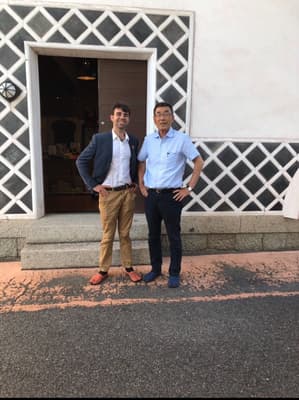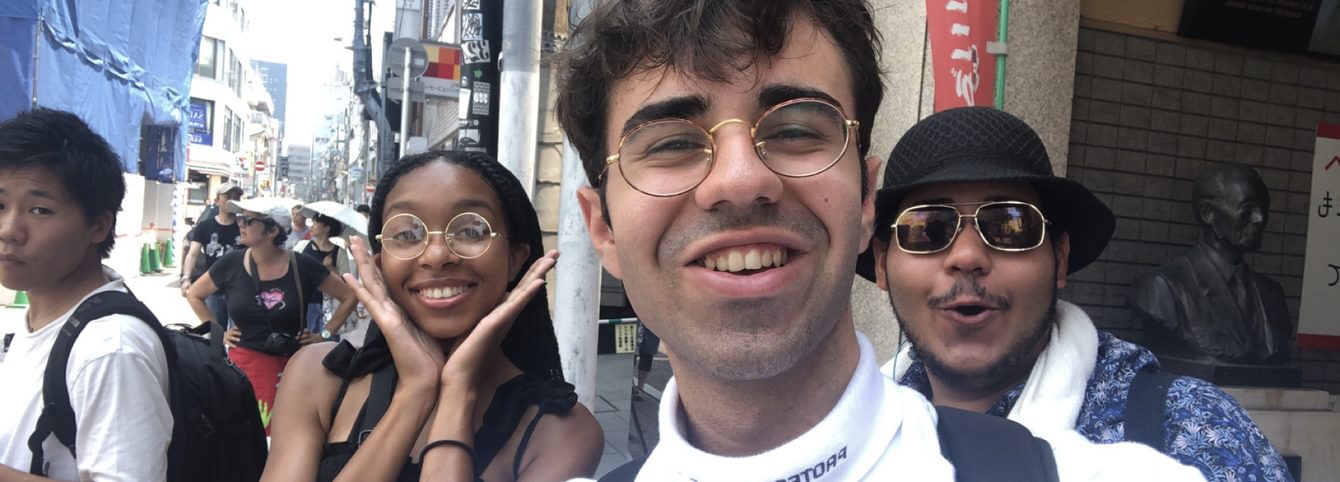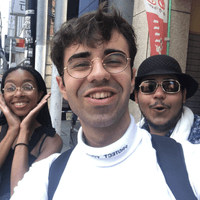Kian Thomas
Kian Thomas is an alumnus of the 2019 CLS Japanese program in Okayama, Japan. He’s currently an undergraduate studying Business Administration at the University of Florida. He plans to become a Foreign Service Officer, utilizing his language skills to advance the global mission of the U.S. Department of State. Kian enjoys reading about history, listening to a range of podcasts, and hiking, biking, and taking in Florida’s nature.
A Bilingual Upbringing
I was born and raised in Gainesville, FL, in a single-parent immigrant household. My mother only knew how to speak Farsi in a town where the local Iranian population was little to non-existent. Over time, as I picked up her language and my native tongue, English, I became a medium through which she could improve her own English skills. While we struggled at times, it provided me with an upbringing that mandated adaptability and taught me to appreciate change and difference, between people and otherwise.
Why Japanese?
I was drawn to Japanese due to my fondness for Japanese media, including literature and anime, as well as the comfortable similarities between Japanese culture and that of my own Persian heritage. Taarof, as it is known in Farsi, is one similarity that calls for mindfulness and consideration towards others during social interaction. Rejecting compliments from, or speaking more formally to, strangers and the elderly out of modesty is one example. Gift exchanges offer another, during which the givers in either culture are obligated to downplay the quality of their gifts. These are only two of the countless ways concepts like these drive daily communication among people and shape outlooks on life. I have aimed to further grasp these similarities by learning Japanese, as language is the key to intuitively understanding the values, customs, and cultures of other societies, as well as how these shape peoples’ perspectives.
Studying Japanese is fantastic because, while being completely unrelated to English linguistically, it is extremely fun being able to continuously make progress on, say, learning Kanji (Chinese vocabulary) and have that be visible by the increased number of words you are able to read each time you opened a newspaper.
Telling Jokes in Japanese
From the start of the program, a minor goal of mine was to elicit genuine laughter from locals by telling jokes that made sense within a Japanese context, rather than awkwardly translating those told here. I tried this repeatedly for weeks with no luck—usually I just got awkward stares. However, to my delight, I accidentally miscounted the cash I owed the convenience store clerk, who was my age. When fixing my mistake, I replied in Japanese saying, “sorry, I sure am not a math student,” to which he gave a hearty laugh and I internally jumped for joy.
Connecting Cultures

In Okayama, I had the privilege to not only witness the national affairs affecting Japanese citizens every day, but also local ones. Becoming close with certain locals gave me the opportunity to spark their curiosity about America and traveling in general, and to seek out world views and ways of life previously unbeknownst to them. Such a phenomenon is important because exposing students everywhere, even those whose fields do not immediately seem global in nature, to the fruits of studying or traveling abroad will help cultivate groups of globally-minded leaders in the future.
Advice for CLS Applicants
Everyone should apply for the CLS Program. If your qualifications match those as described for the language you want to pursue, it will not hurt. To this day, CLS has impacted my life for the better, not just by propelling me forward in my language and cultural studies, but also through the many alumni networks and opportunities that are available thereafter. Very few people leave CLS without having their lives impacted in a very large, positive way. The risk is very low, but rewards very high.



